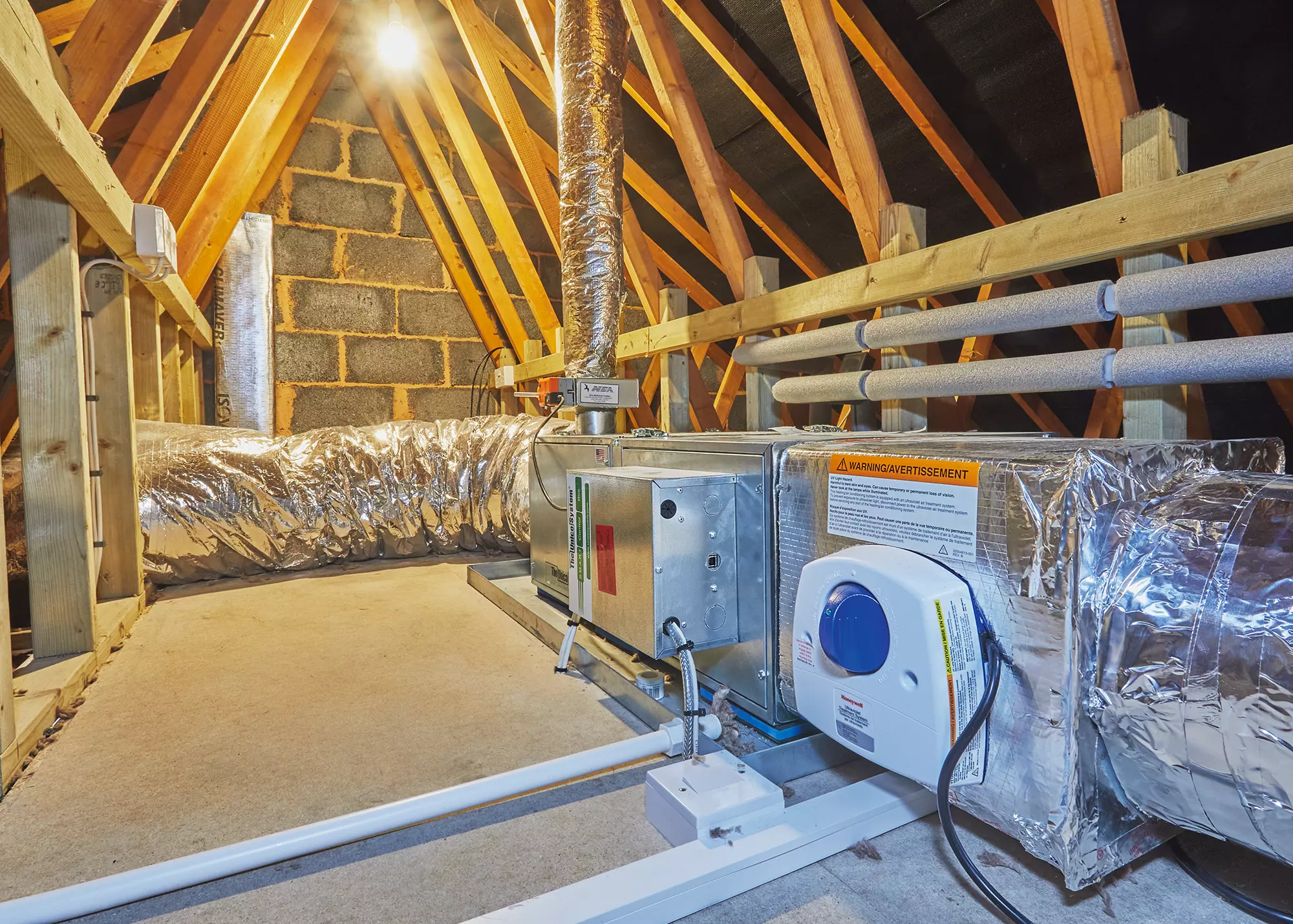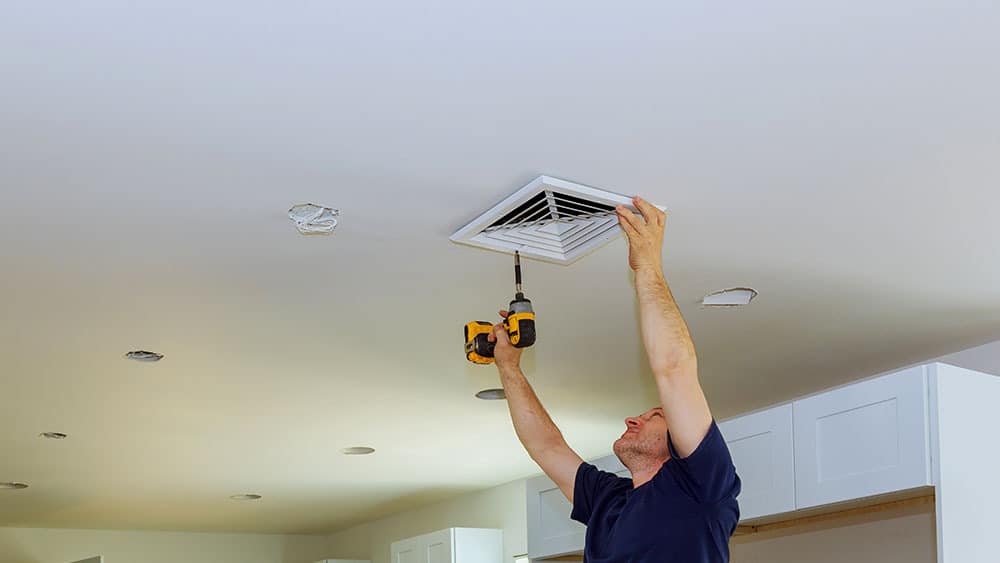Home Ventilation Melbourne Solutions That Support Sustainable Living
Wiki Article
The Duty of Home Air Flow in Stopping Mold and Indoor Allergens
Home air flow is an essential element in maintaining a healthy and balanced indoor environment. It manages moisture levels, which can avoid the development of mold and mildew and the build-up of allergens. Numerous property owners forget the relevance of appropriate ventilation, typically bring about undetected problems. Comprehending just how ventilation systems feature and their effect on air quality might be the trick to a healthier space. What actions can be taken to enhance these systems successfully?Recognizing Home Ventilation Solutions
While several homeowners may ignore the relevance of ventilation, understanding home ventilation systems is vital for keeping interior air top quality and avoiding mold development - Home Ventilation Melbourne. These systems assist in the exchange of stagnant interior air with fresh exterior air, properly reducing contaminants and wetness degrees. Usual kinds include natural ventilation, which counts on wind and temperature level distinctions, and mechanical air flow, which makes use of followers and ducts to manage air flow. In addition, balanced ventilation systems incorporate both methods to optimize air high quality. Effectively developed and preserved air flow systems can help regulate temperature level and moisture, guaranteeing a comfy living atmosphere. Home owners ought to consider elements like home tenancy, format, and climate when picking a ventilation system to best match their demands and enhance overall air quality
The Influence of Humidity on Mold And Mildew Growth
Moisture plays a vital function in mold development, making it a vital factor for home owners to keep an eye on. Mold grows in atmospheres where moisture degrees exceed 60%, as these problems supply the wetness necessary for spores to sprout and multiply. High humidity can arise from various sources, consisting of inadequate ventilation, water leaks, and food preparation or bathing activities. When humidity levels stay raised, mold can create quickly on natural materials such as drywall, wood, and textile. House owners ought to use dehumidifiers and assure correct ventilation in areas susceptible to dampness, such as basements and shower rooms. Maintaining indoor humidity in between 30% and 50% can substantially reduce the danger of mold development, adding to a much healthier living environment.Determining Typical Indoor Allergens
Interior settings can harbor a range of allergens that affect wellness and comfort. Typical interior allergens include dirt mites, family pet dander, mold and mildew spores, and pollen. Allergen grow in bedding, carpetings, and upholstery, feeding on natural material and adding to respiratory concerns. Animal dander, composed of little flakes from skin and fur, can activate allergic reactions in sensitive individuals. Mold and mildew spores, frequently present in moist areas, can proliferate and influence air top quality. In addition, pollen can infiltrate homes with open home windows or on garments. Determining these allergens is crucial for preserving a healthy and balanced indoor setting. Recognition of their presence enables homeowners to take positive actions to lessen direct exposure and enhance total interior air top quality.Benefits of Correct Air Flow
Proper ventilation is essential for maintaining a healthy indoor environment, as it helps to regulate air quality and reduce the accumulation of contaminants. Appropriate airflow assists in the exchange of interior and outside air, thus watering down hazardous substances such as volatile natural compounds, allergens, and dirt. This process not only boosts comfort however also adds to the total wellness of residents by minimizing respiratory system problems (Home Ventilation Melbourne). Correct air flow effectively controls humidity degrees, reducing the possibility of mold development and cultivating a drier environment conducive to health. In addition, it can boost energy effectiveness by look at here now making sure that cooling and heating systems operate extra properly, leading to reduced energy expenses. In general, proper air flow is an essential element in promoting a healthy and balanced and safe home

Tips for Improving Home Ventilation
Although lots of homeowners may ignore it, boosting home air flow is important for enhancing air top quality and protecting against mold and mildew development. One effective technique is to frequently open windows to promote cross-ventilation, allowing fresh air to circulate. Installing exhaust fans in restrooms and kitchens can efficiently get rid of moisture-laden air, lowering moisture levels. Property owners ought to also think about using air cleansers with HEPA filters to capture allergens and pollutants. On a regular basis keeping a/c systems, consisting of changing filters, guarantees come to a head air movement and efficiency. Sealing leakages around doors and home windows can prevent outside air from going into, which aids keep a regular indoor atmosphere. Lastly, integrating houseplants can normally improve air quality while including aesthetic worth to the home.Regularly Asked Concerns
How Often Should I Tidy My Home Air Flow System?
Figuring out how commonly to clean a home air flow system relies on various aspects, including usage and ecological conditions. Home Ventilation Melbourne. Typically, specialists recommend a comprehensive cleansing every 3 to five years to keep ideal air movement and efficiencyCan Plant Kingdom Help Decrease Indoor Allergens?
Study indicates that specific interior plants may help in reducing allergens by boosting air quality and enhancing humidity. Nonetheless, their performance varies, and maintaining a clean atmosphere remains essential for taking care of interior irritants efficiently.What Types of Air Filters Are Finest for Mold And Mildew Prevention?

Exist Details Ventilation Needs for Basements?

How Do I Know if My Air Flow Is Working Effectively?
To establish efficient ventilation, one should monitor moisture levels, examine airflow via vents, and observe indications of condensation or stationary air. Regular analyses can indicate whether the system effectively circulates and exchanges indoor air.Comprehending just how ventilation systems function and their influence on air quality might be the secret to a healthier living area. While content lots of property owners may ignore the relevance of ventilation, understanding home ventilation systems is necessary for keeping interior air quality and avoiding mold growth. Common types include natural ventilation, which relies on wind and temperature differences, and mechanical ventilation, which uses followers and ducts to manage air flow. Appropriate ventilation is essential for maintaining a healthy indoor setting, as it aids to manage air quality and reduce the build-up of pollutants. Several homeowners might overlook it, enhancing home ventilation is important for enhancing air high quality and stopping mold growth.
Report this wiki page